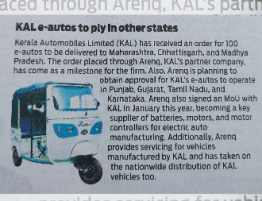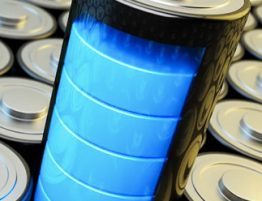
The Different Types of Automotive Batteries: A Comparative Guide
Like all the other industries, the energy sector too has seen many tech revolutions recently. With years of research and development, today we are capable of manufacturing some of the most efficient battery sets for various purposes. This is especially true in the case of automotive batteries. Moreover, when you invest in a vehicle, you want to ensure that you don’t keep spending on fixes, battery changes and replacements. Nobody looks forward to unnecessary bills!
Thus, to ensure long-lasting performance, it becomes important to pay attention to the quality of the battery that runs your engine. With modern technology, specialised processes and high-grade raw materials, batteries now perform better than ever. However, with so many new product lines in the market, it can be tough to find a battery that meets your requirements. Batteries come in many forms and kinds based on the purpose they serve. For you to pick the most suitable battery, here is an extensive guide with all details!
The List of Automotive Batteries:
1. Standard Lead Batteries:
Standard lead batteries have been one of the most popular, in trend and most common kind of battery that has been in use across the years. You might have most commonly noticed it in trucks and other vehicles. They rely on led ions and a system designed for the energy transmission through the flow of ions in an electrolyte solution.
Lead batteries are preferred due to their low cost and flexible usage but they are bulky in weight, affecting their mobility. They are suitable in all types of climates and offer great starting power during transmission. However, lead batteries may have a shorter life and limited cycling capacity. But, you must also consider how lead batteries contain sulphuric acid and fluid electrolytes. Spillage and mishandling could be dangerous and are not very safe for workers and team members. At times, they may also have limited power and might not be able to take up the excess load.
2. Nickel-Cadmium Batteries:
Nickel-Cadmium batteries are a type of rechargeable batteries that work using nickel oxides and an electrode made from Cadmium. It is usually packed in an airtight set up to prevent the highly-corrosive electrolyte from leaking.
Most businesses usually opt for this kind of battery as they are relatively affordable. Besides, they have a wide range of applications. Nickel-Cadmium batteries can be manufactured as per the requirements based on where they need to be used. However, there have been many new improvements and variations in the prototypes and now there is a better range of batteries being manufactured. Thus, Nickel-Cadmium batteries are comparatively low in power to these new, improved variants. Besides, they drain out quickly and might not be very convenient!
3. Lithium-Ion batteries:
Lithium-ion batteries are one of the most-evolved battery solutions that rely on lithium-ion chemistry. They are considered to be environment-friendly and the most striking feature is their application in the mobility of electric vehicles. Besides, lithium-ion batteries are super-fast to charge and have longer drain times.
Like the good-old batteries, Lithium-ion batteries can work very well over a wide range of temperatures, making them extremely reliable. Another big advantage that they offer is that they’re lightweight, durable and easily available. Moreover, unlike other batteries, they require minimal to almost no maintenance!
The Modern Energy Storage Solution!
When you compare batteries, one kind will always have some advantages and disadvantages over the other. Thus, you must understand their technology well enough along with both strengths and weaknesses before you make your final pick!
Storing solar energy in batteries has become the latest feature of batteries. Solar power can now be captured and stored in batteries effectively, thanks to modern technology. Besides, battery storage systems are integrated with grids to capture and store the power of natural resources such as the sun and the wind.
Solar integration makes power consumption not only more economical but also more sustainable and environment-friendly! Thus, make better choices by investing in solar-integrated batteries. Not only is it better for the environment but also more efficient in terms of recharge and power!
Lithium-ion batteries are some of the most-advanced batteries which can be integrated with solar panels for recharging. This might not be possible in the conventional kinds of batteries or might not be as efficient. Besides, along with newer recharge mechanisms, batteries also come with energy-management systems.
Cloud-based energy management systems allow users to keep a track of power usage from any part of the world. This makes tracking of battery usage, recharge cycles and consumption patterns very easy and hassle-free.
You can also quickly generate weekly or monthly reports for making comparisons and use these analytics to improve power usage. This is especially beneficial if you manage a fleet of vehicles, logistics and delivery or any other large industry!
It’s Time To Make Smarter Energy Choices!
Most often than not, one fails to make the best choice while picking a power solution. This is because they have a biased vision as they only look at the cost of batteries. However, this is not a very advisable approach. You also need to consider the cost of battery recharges, maintenance and long-term servicing. Besides, battery life is also a very important parameter. High-grade batteries will last you longer and will also perform more efficiently.
Along with considering performance, you must also pay attention to the technological aspect. Why choose a conventional battery when you can get one with modern energy-management devices built in? Moreover, it is also a good idea to be more diligent about your battery’s footprint on the environment.
So, know exactly what you are looking for and find your perfect battery from the wide range of choices. Try out new technology and then interpret from your experience. Or, simply reach our team of battery experts and let them help you decide. With in-depth knowledge, we can help you find your solution. Worry not cause your high-performance battery is right out there to back you up!




